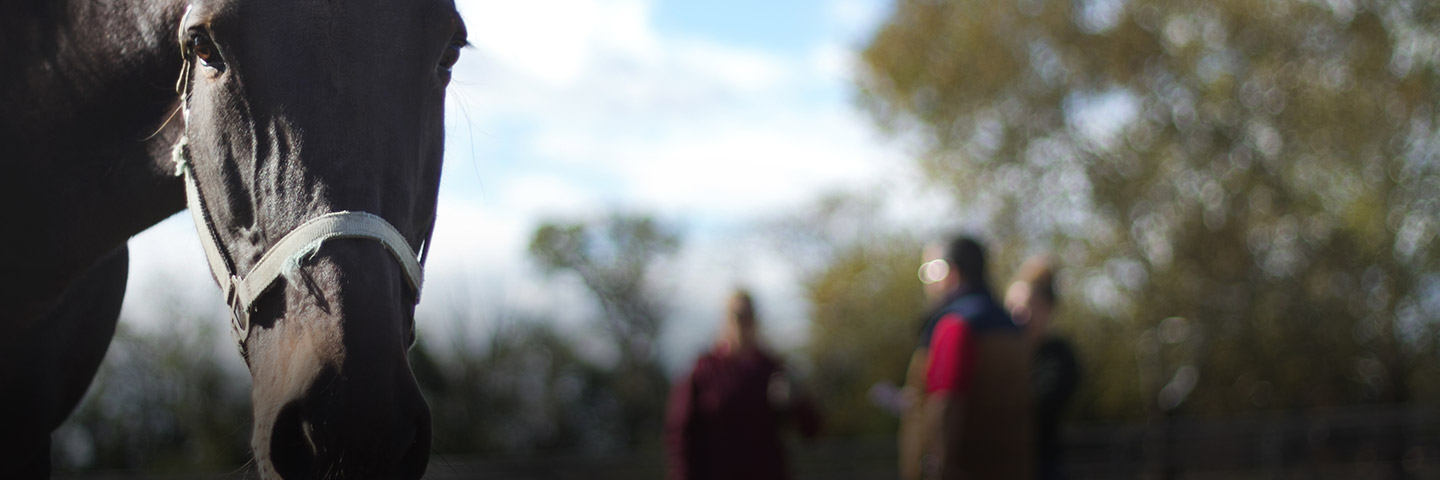Hay Everyone!
One of my pasture mates commented the other day that I was getting rather old. I just snorted in disbelief. I mean have you seen me tearing around the pasture when breakfast is announced? I certainly don’t feel like I’m getting old. I haven’t lost my touch with the ladies either. I decided I’d better do some reading on the subject of aging. After all, I will reach old age someday. I can always dispense advice to my four-legged friends, like my pesky pasture mate. Plus, the Rutgers Equine Science is a leader in research on the aged (that’s old) horse. Let’s take a look at what I learned.
There is a large population of horses over twenty years of age in the United States. Many of them still compete or are used for breeding. Not all of them are sitting around in retirement. Sometimes I think retirement sounds like a lovely plan – doze in the shade and eat to my heart’s content. I would sorely miss my duties as an educator, though!
Just like humans, horses experience changes as they age. The aerobic capacity of horses decreases with age, but exercise can still improve markers of aerobic performance. This means your older horse should stay in work. Not only will it keep your horse fit, but exercise can improve the overall health of your horse. As horses age, their body composition (the proportion of fat and lean muscle in the body) also changes. These changes can be reversed by exercise. Keeping your horse moving can help prevent the stiffening and soreness associated with arthritis.
You don’t want to overdue the exercise, though. Overworking a horse can lead to joint and bone damage which leads to arthritis. Horses also lose their ability to efficiently and effectively thermoregulate or maintain their body temperature as they age. This means you need to closely monitor your older horse during exercise to prevent overheating. This is a special concern in the summer when temperatures soar. Exercise your horse during the coolest parts of the day and hose them off when you’re done. This also means you need to provide sufficient shade in the summertime to keep your horse healthy and happy.
Even though overheating is a special concern in the older horse, it can happen to any horse in the summertime, especially when the weather is hot and humid. Like humans, horses sweat to help thermoregulate and cool themselves off. As the sweat evaporates, it cools the horse or person. When the humidity is high, evaporation is slower and less efficient meaning sweating doesn’t work as well. No matter what age your horse is, you’ll want to exercise it during the coolest part of the day and provide plenty of shade and water in the summertime. Monitor your horse, especially during exercise, for signs of overheating!
The onset of arthritis brings other concerns to horse keeping. Arthritis causes pain to the affected areas. This may make your horse reluctant to lie down because it’s uncomfortable or make it difficult or impossible for your horse to get up again after lying down. You should closely monitor your horse for these issues. Remember, horses do require some sleep lying down. Without this they can become sleep deprived and may fall down while standing up to sleep.
The older horse will also have altered endocrine function (that refers to the hormones that regulate various functions within the body). Many endocrine diseases such as equine metabolic syndrome and Cushing’s disease are thought to be more common in older horses. Carefully monitoring your horses body condition and demeanor can help you catch any changes early on. Some of these changes are attributed, at least in part, to inflammaging or the increase in inflammatory cytokines attributed to age.
Inflammaging is accompanied by immunosenescence or decreases in the ability of the immune system to ward off pathogens like bacteria and viruses. The immune system is what keeps your horse healthy by protecting it from diseases and infection. Although research has not confirmed the recommendation, you should consider vaccinating your horse more often as it ages. You definitely should not vaccinate your horse less often as it needs those vaccines to stay healthy and well-protected against disease.
It is not uncommon for older horses to lose weight. Maintaining an appropriate deworming schedule is one key aspect of keeping the older horse happy and in good condition. Poor dentition can also make it difficult for your horse to chew its food. Twice a year checks of an older horse’s teeth are recommended. If you horse has lost teeth, feeding a complete feed may be the best option to help prevent choke and ensure your horse is getting the nutrients it needs. Aging can also lead to changes in the digestion and absorption of nutrients, so your horse may need a higher quality diet or more feed as it ages to account for these changes. If you want more tips on feeding the aged horse, you can visit one of our fact sheets.
I’m not sure getting old sounds like very much fun. There certainly are a lot of changes that occur with getting older. On the bright side, it also sounds like we have ways to combat some of these changes to keep your older horse happy and healthy! I’m going to talk to my friends at the Center about putting together an exercise plan for me. I’m going to keep myself healthy even as I do start to age, so it’s a graceful process!
Until next time!
Your Friend,

Lord Nelson

